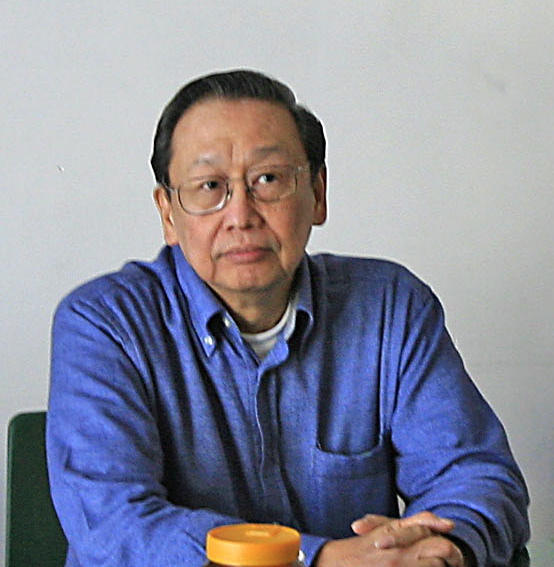
(FILE) CPP founder Jose Ma. Sison. ERNIE U. SARMIENTO
Communist rebels are withdrawing from peace talks with the Duterte administration following its recent cancellation of the resumption of formal negotiations that had been scheduled by both sides for late this month.
Communist Party of the Philippines (CPP) founding chair Jose Maria Sison said in a statement on Thursday that it would be easier for the communist-led National Democratic Front of the Philippines (NDFP) to take part in the movement to oust President Duterte.
A review of President Duterte’s actions since he took office in 2016 showed that he was interested only in the “capitulation and pacification” of the CPP and its armed wing, the New People’s Army (NPA), without dealing with the root causes of the nearly 50-year-old insurgency, Sison said.
Duterte reaction
In an interview with reporters in Panglao, Bohol province, on Thursday, President Duterte brushed off Sison’s statement.
“I am here as a worker of government and my main task is to seek, find the peace of the country. If they are not willing to talk to me, that’s fine, I have no problem. So we continue with the war,” he said.
The President added: “If you want to cease overthrowing governments, fine. You want to talk? Come here. If you don’t want to, fine.”
Reacting to Sison’s statement, presidential spokesperson Harry Roque said in a text message to reporters: “Spoken like a true terrorist.”
Jesus Dureza, the President’s peace adviser, has said the talks were merely postponed to allow public consultations on the agreements so far reached between the government and NDFP negotiators.
These, he said, would build both goodwill and support for the peace negotiations among the people.
Reached by the Inquirer through text message on Thursday, Dureza declined to comment on Sison’s statements.
Implications of impasse
Sison, who serves as chief political consultant to the NDFP in the talks, noted that the President had terminated the peace negotiations three times since May 2017 and unilaterally called off the resumption of the talks on June 28-30 in Oslo, Norway.
Before the Oslo talks were canceled, the two sides were to have announced a stand-down, or a preliminary truce, between the NPA and the military prior to the signing of an interim peace agreement.
“Based on the implications drawn from the current impasse, the NDFP can no longer negotiate with a [government] that is headed by Duterte,” Sison said. “So long as he heads the [government], the Filipino people, especially the oppressed and exploited, cannot expect any benefit from negotiating with the Duterte regime.”
“It is relatively easier and more productive for the NDFP to participate in the oust-Duterte movement and to prepare for peace negotiations with the prospective administration that replaces the Duterte regime,” he said.
Sison said the President’s promise to grant amnesty and release all political prisoners before the talks were to resume under his administration “is a long and repeatedly proven lie.”
President Duterte “has no real interest” in a proposed bilateral socioeconomic accord to establish an economic program that includes national industrialization and genuine land reform, he said.
Marcos’ line
Instead, the chief executive continues to retain the “semifeudal” economy while following the late dictator Ferdinand Marcos’ “line of build, build, build infrastructure, borrow, borrow, borrow and steal, steal, steal,” Sison said.
“It is well and good if Duterte withdraws finally from the peace negotiations with the NDFP. Thus, he deprives himself of the opportunity of creating false illusions that he is for peace. He stands isolated and ripe for ouster by the broad united front,” he said.
He accused the President of being obsessed with an indefinite ceasefire without any prior agreements on basic reforms as required by the 1992 The Hague Joint Declaration between the NDFP and the government.
President Duterte, he said, canceled the resumption of the formal peace talks brokered by the Norwegian government to allow the military and police to crush the NPA by the end of this year and to change the venue of the negotiations to Manila so that the military could conduct surveillance on NDFP personnel and harass them.
Following the termination of the talks last November, the President issued a proclamation to end the negotiations and another to designate the CPP and NPA as terrorist organizations. In February, the government filed a case before the Manila regional trial court to proscribe the CPP, NPA and 600 individuals as terrorists.
Despite the planned resumption of the talks late in June, Mr. Duterte did not rescind the proclamations and the court case.
Peace advocates
Those moves by the President would have been enough basis for the NDFP to terminate the talks earlier, but peace advocates demanded that both sides to continue the negotiations and, as a result, reached several agreements, including the proposed temporary peace deal, Sison said.
He said all draft agreements could be carried over to negotiations under a post-Duterte administration and further improved.
All agreements already produced can be used by peace advocates and people’s organizations for information, education campaigns and consultations with the people, Sison said.
He said many of the reforms could be promoted and developed even without peace negotiations. — WITH REPORTS FROM JULIE M. AURELIO AND JEANNETTE A. ANDRADE

